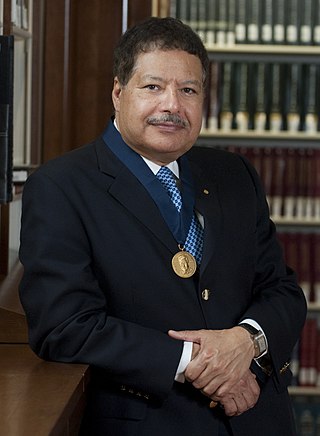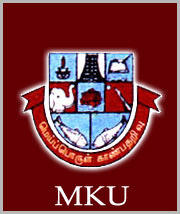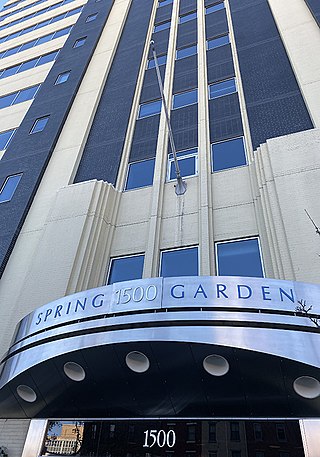Related Research Articles

The Nobel Prizes are five separate prizes awarded to those who, during the preceding year, have conferred the greatest benefit to humankind, as established by the 1895 will of Swedish chemist, engineer, and industrialist Alfred Nobel, in the year before he died. Prizes were first awarded in 1901 by the Nobel Foundation. Nobel's will indicated that the awards should be granted in the fields of Physics, Chemistry, Physiology or Medicine, Literature, and Peace. A sixth prize for Economic Sciences, endowed by Sweden's central bank, Sveriges Riksbank, and first presented in 1969, is also frequently included, as it is also administered by the Nobel Foundation. The Nobel Prizes are widely regarded as the most prestigious awards available in their respective fields.

Washington University in St. Louis (WashU) is a private research university in St. Louis, Missouri, United States. Founded in 1853, the university is named after George Washington, the first president of the United States.

Ahmed Hassan Zewail was an Egyptian-American chemist, known as the "father of femtochemistry". He was awarded the 1999 Nobel Prize in Chemistry for his work on femtochemistry and became the first Egyptian and Arab to win a Nobel Prize in a scientific field, and the second African to win a Nobel Prize in Chemistry. He was the Linus Pauling Chair Professor of Chemistry, a professor of physics, and the director of the Physical Biology Center for Ultrafast Science and Technology at the California Institute of Technology.

The Hoover Institution is an American public policy think tank which promotes personal and economic liberty, free enterprise, and limited government. While the institution is formally a unit of Stanford University, it maintains an independent board of overseers and relies on its own income and donations. It is widely described as conservative, although its directors have contested the idea that it is partisan.
Academia Sinica, headquartered in Nangang, Taipei, is the national academy of the Republic of China (Taiwan).

Baruch Samuel Blumberg, known as Barry Blumberg, was an American physician, geneticist, and co-recipient of the 1976 Nobel Prize in Physiology or Medicine, for his work on the hepatitis B virus while an investigator at the NIH and at the Fox Chase Cancer Center. He was president of the American Philosophical Society from 2005 until his death.

Peter Agre is an American physician, Nobel Laureate, and molecular biologist, Bloomberg Distinguished Professor at the Johns Hopkins Bloomberg School of Public Health and Johns Hopkins School of Medicine, and director of the Johns Hopkins Malaria Research Institute. In 2003, Agre and Roderick MacKinnon shared the 2003 Nobel Prize in Chemistry for "discoveries concerning channels in cell membranes." Agre was recognized for his discovery of aquaporin water channels. Aquaporins are water-channel proteins that move water molecules through the cell membrane. In 2009, Agre was elected president of the American Association for the Advancement of Science (AAAS) and became active in science diplomacy.

Madurai Kamaraj University (MKU) is a public state university located in Madurai city, in southern Tamil Nadu, India, that was established in 1966. MKU is one of the 15 universities in India with the University with Potential for Excellence status, which was awarded by the University Grants Commission (UGC) in India. In 2021, the university was awarded an 'A++' grade from the National Assessment and Accreditation Council (NAAC) in its 4th cycle.

Dan Shechtman is the Philip Tobias Professor of Materials Science at the Technion – Israel Institute of Technology, an Associate of the US Department of Energy's Ames National Laboratory, and Professor of Materials Science at Iowa State University. On April 8, 1982, while on sabbatical at the U.S. National Bureau of Standards in Washington, D.C., Shechtman discovered the icosahedral phase, which opened the new field of quasiperiodic crystals.

Steven Chu is an American physicist and former government official. He is a Nobel laureate and was the 12th U.S. secretary of energy. He is currently the William R. Kenan Jr. Professor of Physics and Professor of Molecular and Cellular Physiology at Stanford University. He is known for his research at the University of California, Berkeley, and his research at Bell Laboratories and Stanford University regarding the cooling and trapping of atoms with laser light, for which he shared the 1997 Nobel Prize in Physics with Claude Cohen-Tannoudji and William Daniel Phillips.

Carolyn Ruth Bertozzi is an American chemist and Nobel laureate, known for her wide-ranging work spanning both chemistry and biology. She coined the term "bioorthogonal chemistry" for chemical reactions compatible with living systems. Her recent efforts include synthesis of chemical tools to study cell surface sugars called glycans and how they affect diseases such as cancer, inflammation, and viral infections like COVID-19. At Stanford University, she holds the Anne T. and Robert M. Bass Professorship in the School of Humanities and Sciences. Bertozzi is also an Investigator at the Howard Hughes Medical Institute (HHMI) and is the former director of the Molecular Foundry, a nanoscience research center at Lawrence Berkeley National Laboratory.

The Alexander von Humboldt Foundation is a foundation that promotes international academic cooperation between select scientists and scholars from Germany and from abroad. It was established by the government of the Federal Republic of Germany and is funded by the Federal Foreign Office, the Federal Ministry of Education and Research, the Federal Ministry for Economic Cooperation and Development as well as other national and international partners.

The World Academy of Art and Science (WAAS), founded in 1960, is an international non-governmental scientific organization and global network of more than 800 scientists, artists, and scholars in more than 90 countries.

The Lindau Nobel Laureate Meetings are annual scientific conferences held in Lindau, Bavaria, Germany, since 1951. Their aim is to bring together Nobel laureates and young scientists to foster scientific exchange between different generations, cultures and disciplines. The meetings assume a unique position amongst international scientific conferences, as from 30 to 65 Nobel laureates attending each edition they are the largest regular congregation of Nobel laureates in the world, apart from the Nobel Prize award ceremony in Stockholm.

The Asian Science Camp (ASC) is an annual forum for pre-collegiate and college students which aims at promoting discussion and cooperation among Asian students for the betterment of science in the Asian region. The first ASC was held at Taipei in 2007, and was subsequently held at Bali in 2008, Tsukuba in 2009, Mumbai in 2010, Daejeon in 2011, and Jerusalem in 2012, among others. This idea of an annual camp was co-proposed by Yuan Tseh Lee and Masatoshi Koshiba at the 2005 Lindau Nobel Laureate Meeting. The ASC is modeled after the Lindau meetings.

Tasuku Honjo is a Japanese physician-scientist and immunologist. He won the 2018 Nobel Prize in Physiology or Medicine and is best known for his identification of programmed cell death protein 1 (PD-1). He is also known for his molecular identification of cytokines: IL-4 and IL-5, as well as the discovery of activation-induced cytidine deaminase (AID) that is essential for class switch recombination and somatic hypermutation.
Semantic Scholar is a research tool for scientific literature powered by artificial intelligence. It is developed at the Allen Institute for AI and was publicly released in November 2015. Semantic Scholar uses modern techniques in natural language processing to support the research process, for example by providing automatically generated summaries of scholarly papers. The Semantic Scholar team is actively researching the use of artificial intelligence in natural language processing, machine learning, human–computer interaction, and information retrieval.

Donna Theo Strickland is a Canadian optical physicist and pioneer in the field of pulsed lasers. She was awarded the Nobel Prize in Physics in 2018, together with Gérard Mourou, for the practical implementation of chirped pulse amplification. She is a professor at the University of Waterloo in Ontario, Canada.

Clarivate Plc is a British-American publicly traded analytics company that operates a collection of subscription-based services, in the areas of bibliometrics and scientometrics; business / market intelligence, and competitive profiling for pharmacy and biotech, patents, and regulatory compliance; trademark protection, and domain and brand protection. In the academy and the scientific community, Clarivate is known for being the company that calculates the impact factor, using data from its Web of Science product family, that also includes services/applications such as Publons, EndNote, EndNote Click, and ScholarOne. Its other product families are Cortellis, DRG, CPA Global, Derwent, CompuMark, and Darts-ip, and also the various ProQuest products and services.
References
- ↑ Sundén, Hjalmar (1975-01-01). "Tong-il: some observations on a central problem in the psychology of religion". Scripta Instituti Donneriani Aboensis. 7: 175–188. doi: 10.30674/scripta.67090 . ISSN 2343-4937.
- ↑ Kurti, N. (1978-11-01). "Should scientists attend the ICUS?". Nature. 276 (5685): 206–207. Bibcode:1978Natur.276..206K. doi:10.1038/276206a0. ISSN 1476-4687. S2CID 28289879.
- 1 2 "WashingtonPost.com: The Cult Controversy". www.washingtonpost.com. Retrieved 2022-11-19.
- ↑ "ICUS Legacy: 1972–2000". HJIFUS (USA). Retrieved 2022-11-19.
- ↑ Group, TWT Global Media (2021-04-26). "Seventy-one scholars from 13 countries attended the 27th International Science Conference". GlobeNewswire News Room (Press release). Retrieved 2022-11-19.
{{cite press release}}:|last=has generic name (help)